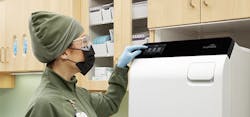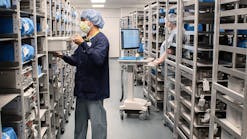Michele DeMeo, CSPDT, CRCST, Independent CS/SPD Consultant at MDD Virtual Consulting, offers the following tips for CS/SPD professionals to prepare their departments for unexpected lapses in quality due to equipment breakdowns, utility failures or other factors.
- Update policies and procedures: Read every single policy and procedure currently available or so-called “in-place” and comprise a list of those in need of revision (any that has a date that exceeds when newer studies and best practice standards have been issued, as well as those deemed flawed or missing. Compile your references, craft the revisions or draft new and necessary policies and procedures. This includes sub-policies and procedures for breakdowns short and long term, in-house or externally. Always have the latest versions of ANSI/AAMI ST-79, current state regulations and stakeholder best practices on hand.
- Educate: Elaborate on core competencies with an extensive return demonstration, as well as written examination and mock code situations. Consider developing educational programs and submitting them to respected publications such as HPN for continuing education unit (CEU) credits — this not only keeps your manager/director current, but leverages his/her competency and level of expertise to others in the nation or abroad.
- Prepare for the unexpected: Have quarterly drills for various scenarios. Purposely rotate and “disrupt” staffing patterns randomly to keep your associates “on their toes.” Crew rotate in the OR for morning and shift change rounds, plus, periodically throughout the day. Have a technician and/or manager “roam” EVERY department to observe practices, patterns and look for code violations, and breaks in best practices from an equipment, storage, instrument handling and usage vantage point. Ensure that your team and its responsibilities are structured in a manner that can be nearly immediately mobilized to another area.
- Collaborate: Secure a seat at ALL of the major committees such as infection control, surgical services, hazmat, risk management and quality assurance. Participate in executive brain storming sessions if they include augmentation of service lines, a new department or additional onboarding of surgeons.
- Engage external resources: Enlist the help of external resources such as infection control, customers, other centers of excellence, and both narrow and broad thinkers in other areas of expertise that interface with CS/SPD, such as engineering, bioengineering, environmental services, operating room (OR), emergency department (ED), hazmat, risk management, and physicians. Be sure to train any extended members or associates. Construct relationships with neighboring facilities to work/observe at each other’s units to learn and/or offer advice. This helps to build relationships in times of need, regardless of higher-level politics.

About the Author
Michelle DeMeo
Michelle DeMeo,CPSDT, CRCST is an independent consultant and retired HPN Editorial Advisory Board member.
Sponsored Content





